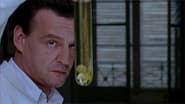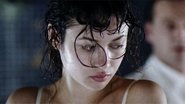Exoticalot
People are voting emotionally.
VeteranLight
I don't have all the words right now but this film is a work of art.
Comwayon
A Disappointing Continuation
Cooktopi
The acting in this movie is really good.
christopher-underwood
Very fine film, beautifully photographed and directed with a wonderful central performance from Olga Kurylenko, who of course, has deservedly gone on to find fame and fortune, while this gem languishes, barely seen. I had never heard of it when I picked it up but am certainly glad I did. Based on a book by Japanese author Yoko Ogawa this is a marvellously quirky tale on the nature of obsession and possession. Some have mentioned David Lynch and I would have thought most of his fans would enjoy this. Set mainly in the port of Hamburg, we get a fantastic painterly picture with the increasingly strange happening inside as people visit to have painful memories preserved and thereby contained. Very Japanese in concept and this would have worked more easily in a Japanese setting but this is still a unique experience well worth seeing. Oh, and I almost forgot mesmerising score from Beth Gibbons, which is sadly not available.
lastliberal
This little gem was Olga Kurylenko's (Quantum of Solace, Hit-man, Paris, je t'aime) first film. That is the only thing that attracted me to it. She has a beauty that just draws you in no matter what she stars in.She has to do a lot of acting in this film, as it is short on dialog. She injures herself in an industrial accident and ends up in a situation with a strange man in a strange job, and sharing a room with a sailor who works nights. The only interaction with the sailor is through what he leaves in the room, but the relationship with her boss takes on an erotic turn.Despite the absolutely awesome display of femininity by Kurylenko in the musical and visual feast, there just wasn't enough story to carry this all the way.
Chalice_Of_Evil
While this isn't the first foreign film that I've watched, it's certainly the first one that I've done a review for. Admittedly, what got me interested in checking this film out was Olga Kurylenko. I'd first seen her in the James Bond movie, Quantum of Solace - which wasn't exactly a great movie, but I thought she did really good in it. Therefore, I held out hope that L'annulaire (or 'The Ring Finger', as it's called here in Australia) would prove to better utilize this talented actress. Thankfully, it *does*.The opening scene is of a young girl talking to a man in a white coat (Marc Barbé), asking if she can get a "specimen" of the fungi she's brought to him. We then get quite a beautiful piece of music (with a twinge of eeriness to it) playing over the interestingly-filmed opening credits, featuring the fungi.Olga Kurylenko plays a young woman named Iris. When Iris is first introduced, she's working at a bottling plant (until she has an accident, involving her cutting off the tip of her ring finger on a broken bottle). Apart from the gushing blood from her wound, there's also a gruesome shot of the blood filling up the bottle on the conveyor belt. She then hallucinates the bloodied cut-off tip of her finger boiling in a glass of water. The sweltering heat doesn't help matters. Iris ends up moving to a port town. After getting accommodation, she takes an interest in a sailor named Costa (Stipe Erceg), who just happens to be the same person who shares the room she's staying in. He works nights at the docks, and is only there when she is out.Iris manages to find work, but it's at a creepy place, and inside is a creepy bloke (the man in the white lab coat from the opening scene). He informs her that their job is to "prepare specimens and preserve them". People bring in personal artifacts they want to keep forever and get a 'specimen' made of the objects. From this point on, she finds herself drawn to her employer.He later takes her down to his "inner sanctum", where it is cooler, but also isolated. Everything's quiet down there, where he goes to "unwind" (apparently, preparing specimens is "tiring work"). He observes that the shoes she wears are "not stylish enough" for someone her age, and he gives her a pair of shoes that he's bought her. When she asks how he managed to guess her size (the shoes fit "like a glove"), he says that all he had to do was look at her foot to know its size. It's actually a very sexual moment, as he removes her shoes and puts on the ones he's given her. He tells Iris he would like her to wear the shoes every day, all the time, whether he's looking at her or not. As if his behaviour wasn't already questionable enough, on a day where she arrives at work in the rain, he gets her to undress in front of him.Iris then meets a shoe-shiner, who compliments her shoes, but warns her that keeping them on all the time will lead to the possibility of losing her feet. He says that the shoes are "taking her over" - which becomes very important. There's a bit of humour injected when Iris informs a potential client that a specimen cannot be made out of a malevolent shadow. She then spends some time with her employer down in the bathroom, where they have a light-hearted moment of calling out, letting the sounds of their voices echo. One thing leads to another, they eventually end up having sex (he's quite forceful with her, but she seems to not be entirely against it). At one point, after asking her if there's not a specimen that she would like preserved, he urges her to remember her most painful memory. She then tells him the story of how she lost the tip of her ring finger. There's a great moment later on, with Iris swinging on one of the crane hooks by the harbour.She eventually finds a note in her room from the sailor, saying that he's leaving and that he'd like to meet her before he goes. When she goes to meet him, however, he's kissing some other girl (the fool!), thereby totally blowing his chances with Iris. She's more interested in her boss anyway. Although Iris learns that other girls who'd worked for him had "vanished/disappeared", not to mention the fact that he makes her spend all day picking up the pieces of a Mahjong set she accidentally drops (and, oh yeah, he's a CREEP!), she still has sex with him. As she explains to the shoe-shiner later, she's unsure about her feelings and feels it is impossible for her to leave the place. The shoe-shiner informs her that if she doesn't take the shoes off immediately, she'll never be able to get away. He suggests she get a specimen of the shoes, so that her feet can be free, but she tells him she doesn't want them to be free.She eventually asks the lab director to take her to the basement, but he won't do this unless she wants a specimen preserved. In the end, we see her take off her shoes and leave them as she disappears into a white light. The ending is open to interpretation. This was an odd movie, but not necessarily a "bad" one. Olga Kurylenko portrays Iris with lots of nuance. She's able to say SO much, with so few words. It's all there in her expressions/her eyes. You really feel for her character, and she's the main reason this film works. The haunting music and the beautifully-shot scenery contributes to the unnerving atmosphere. It's a film that you definitely have to think about, and you'll appreciate it more after repeated viewings.
Richard
I saw this film at the 2005 Toronto International Film Festival.L'Annulaire is the second feature film from director Diane Bertrand, who also wrote the screenplay for this adaptation of Yoko Ogawa's novel.The film follows Iris (Olga Kurylenko), who moves to a port town after cutting off the tip of her ring finger in an industrial accident. She quickly finds lodging in a hotel down by the harbour, but is forced to share a room with a sailor who works at night and sleeps while she is out in the day. While searching for work, by chance she comes across an old girls' school that now houses a man (Marc Barbe) who preserves and stores personal artifacts that people bring to him.Taking a job as the man's office assistant, she soon becomes involved in a sort of relationship with him, while at the same time being intrigued by the sailor (Stipe Erceg), whom she only knows through the things left in their shared room.The movie, filmed in Hamburg and just outside Paris, is beautifully shot. Bertrand favours many tight shots of the characters, giving a more intimate feel to many of the moments in the film. Noah Cowan, the co-director of the festival, described the film as combining the contemplative feel of Asian cinema with the sexual energy of European cinema. Thus, the film is very spare in its dialogue, leaving only the words that are spoken and the looks between characters as the framework on which to interpret the story.The preservation of personal artifacts in the film causes one to wonder about the nature of memories, loss, and the desire or need to move on, extending even to Iris' own life. This helps to draw the viewer into what is a very quiet and meditative film.I found the actress playing Iris was quite good, especially given that it was her first film and that she had to communicate so much non-verbally. A few of the scenes between her and the preservationist were charged with a lot of sensual energy, even in something as simple as him putting a pair of shoes on her feet.Notes from the Q&A with director Diane Bertrand: - L'Annulaire is very open-ended, and Bertrand herself admitted the film doesn't give any answers; the audience can imagine what it wants.She tried to be faithful to the novel, but it is very short. Bertrand added the sub-plot with the sailor.When asked why she adapted this novel, Bertrand said when she first read the book, she couldn't stop, and had all these images in her head, which was unusual since the atmosphere in the book is not European. But even upon re-reading the novel she still had the same feelings. She felt aspirations to explore the desire, love, and mysteries of the story.Olga Kurylenko is from the Ukraine, and this was her first film, thus making it difficult to obtain financing. Thus, there was lots of time for her to work on her character; Bertrand asked her to watch lots of films and read a lot of books. Kurylenko felt a bond to the character.The director of photography is also a photographer, which accounts for the look of the film.Bertrand wanted to film something slow like a painting, to make the audience feel as though they are watching moving images.Minor spoilers below:Bertrand had less direction for Marc Barbe, but she did ask him to not play his scenes with Kurylenko like he wanted to seduce her, even though the character seems to know exactly what she needs. Iris is supposed to feel that he sees inside her as soon as they meet. Barbe agreed that the character does not need to explain himself.In the novel, the shoes which play an important role in the story are black, not red, however Bertrand has a bit of an obsession with the colour red.Bertrand feels the story really starts with the scene where the preservationist puts the shoes on Iris' feet. It is Ogawa's theme that Iris has a feeling of being possessed by the shoes. But when Barbe's character tells Iris that she can't take the shoes off, she gives him a quick look that says "ok, so you want to play this game" and decides to do it, preferring to live something rather than nothing.








